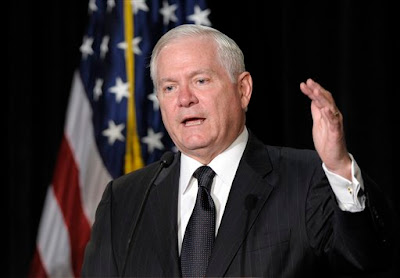 President Obama
President Obama continued on Thursday what might be called his Go-for-It Tour, traveling to this Northeastern state — represented by two moderate Republican senators who balked at his health care overhaul — to dare the opposition party to run against it this fall.
Mr. Obama ridiculed Republicans for apocalyptic predictions about the health care program and needled them about their campaign platform calling for repeal, repeating the “Go for it” challenge he issued in Iowa last week.
Supporting repeal, the president said, means Republicans would take away tax credits for small businesses and tell some Americans they would have to face a lifetime of debt again. “If they want to have that fight, I welcome that fight,” he said to raucous cheers, “because I don’t believe the American people are going to put the insurance industry back in the driver’s seat.”
But even before Air Force One had touched down in nearby Portsmouth, the Republican National Committee sent reporters an e-mail message calling Mr. Obama an “Anti-job Maine-iac” and dismissing his assertion that the health care program will help small businesses as “just a bad April Fools’ joke.”
The message went on to ask: “Why aren’t Maine’s job creators fooled by Obama’s rhetoric?” and cited news reports quoting business owners in the state expressing concern about the new law’s mandates and tax increases.
Outside the center, protesters made clear their point of view as well with signs like “Marxist in Chief,” “Get Govt Out of Our Private Lives” and “Dump Socialism.”
With supporters inside chanting his 2008 slogan, “Yes, we can,” Mr. Obama’s campaign-style rally here was to be followed by a pair of campaign fund-raisers in Boston later in the day. The selection of these two New England states put the president right in the face of Republican senators from a more liberal part of the country.
Maine’s two senators, Olympia J. Snowe and Susan Collins, are perhaps the most moderate Republicans in the Senate, and at one time the White House harbored hopes of luring one or both into supporting the health care program. In fact, Ms. Snowe voted for a version in committee before opposing the final version on the floor.
Massachusetts, of course, is home to Senator Scott Brown, the Republican whose election in January sent a warning shot to the White House about public discontent with the health care plan and other Obama initiatives.
In his speech in Portland, Mr. Obama did not take direct shots at the Republican senators by name, though he did tweak Ms. Snowe by noting that his plan incorporated ideas from both sides of the aisle, “including some from your senator, Olympia Snowe, who I consider a friend and who spent many hours meeting with me about this bill.”
The White House said that it invited both Ms. Snowe and Ms. Collins to Thursday’s speech but that neither could attend. Ms. Snowe’s office said she already had a full day of events planned in Maine before learning last Friday of the president’s visit. But the senator added in a statement that “it’s always an honor and privilege to have the president of the United States visit our great state.”
Kevin Kelley, a spokesman for Ms. Collins, said she was on a trip to Qatar and Europe to talk with allies about counterterrorism and offered the same sentiment about the honor of a presidential visit. He added: “While health care is certainly an important topic, Senator Collins is hopeful that the president will also use this opportunity to talk more about his plans to help create much-needed jobs and address the struggling economy.”
Mr. Obama said that his health care program would help struggling small businesses through a tax credit for providing insurance. Under the program, small businesses and nonprofit groups can claim a credit for up to 35 percent of the cost of premiums they pay to cover workers, increasing to 50 percent in 2014.
The president said that Republicans and some pundits had distorted the program with “a lot of fear mongering, a lot of overheated rhetoric,” noting that Representative John A. Boehner of Ohio, the House Republican leader, described its passage as “Armageddon.”
“So after I signed the bill, I looked around,” Mr. Obama said. “I looked up in the sky to see if asteroids were coming. I looked at the ground to see if cracks had opened up in the earth. But you know what? It turned out to be a pretty nice day. Birds were still chirping. Folks were strolling down the street. Nobody had lost their doctor. Nobody had pulled the plug on Granny. Nobody was being dragged away and forced into some government-run health care.”


















